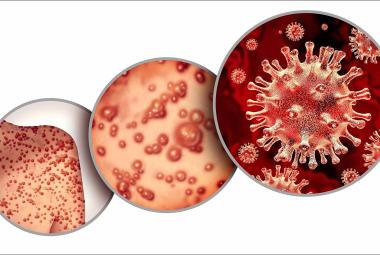Many women choose to consume alcohol during their reproductive years. For most people, alcohol consumption in moderation is not harmful but for a fetus, alcohol exposure can be devastating. The office of the US Surgeon General recommends complete abstinence from alcohol for women who are planning to become pregnant and throughout all stages of their pregnancy.1
Alcohol freely crosses the placenta allowing fetal alcohol levels to rise near maternal levels within two hours of the mother’s drinking. The fetus is unable to metabolize the alcohol effectively and relies on the mother’s liver to remove it. The substantial person-to-person variation in alcohol metabolism rates also produces similar variation in the level of effect on the fetus.2 There is no firm dose-response relationship between alcohol consumption and fetal malformation, nor has a minimum safe alcohol level been established.3
In utero exposure to alcohol has a variety of effects, all of which are lifelong. These effects range from stillbirth, low birth weight, and facial malformations to mental and behavioral disorders. The term “fetal alcohol spectrum disorder” encompasses all of these problems. Although the input of many experts, such as child psychologists and special education professionals, can address the child’s deficits, there is no way to undo the damage done by the alcohol exposure.4 However, there are many resources available to help women stop drinking and to care for babies affected by fetal alcohol exposure.
National Institute for Alcohol Abuse and Alcoholism
Substance Abuse Treatment Facility Locator
National Organization on Fetal Alcohol Syndrome
Fetal Alcohol Syndrome Family Resource Institute
James Abbey, MD
References:
- Carmona RH. Advisory on Alcohol Use in Pregnancy Center for Disease Control; 2005:2.
- Burd L, Blair J, Dropps K. Prenatal alcohol exposure, blood alcohol concentrations and alcohol elimination rates for the mother, fetus and newborn. Journal of perinatology : official journal of the California Perinatal Association. Sep 2012;32(9):652-659.
- Henderson J, Gray R, Brocklehurst P. Systematic review of effects of low-moderate prenatal alcohol exposure on pregnancy outcome. BJOG : an international journal of obstetrics and gynaecology. Mar 2007;114(3):243-252.
- Koren G, Nulman I, Chudley AE, Loocke C. Fetal alcohol spectrum disorder. CMAJ : Canadian Medical Association journal. Nov 25 2003;169(11):1181-1185.







